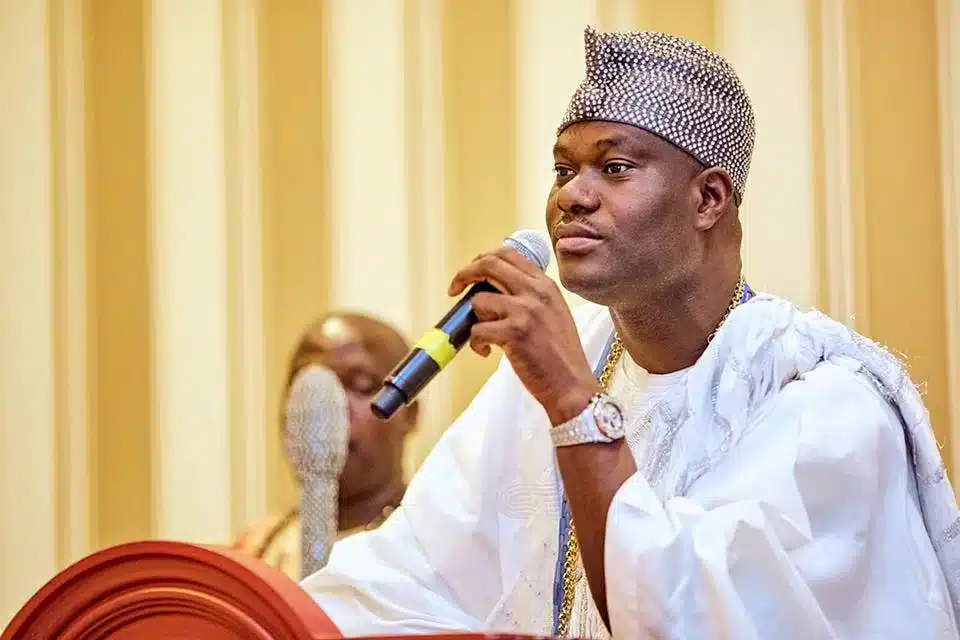The Ooni of Ife, Oba Adeyeye Enitan Ogunwusi, has registered his support for the initiative by 60 members of the House of Representatives advocating for Nigeria’s return to a parliamentary system of government.
He made this known while speaking to a delegation of lawmakers led by the House Minority Leader, Rep. Kingsley Chinda, and Rep. Abdulsamad Dasuki, who visited him in Abuja over the weekend.
The legislators visited the monarch to seek his counsel, blessings, and support for the proposed bills aimed at restructuring elections at the local, state, and federal levels.
Addressing the legislators, he described the current presidential system as accidental, expressing regret that the parliamentary system of government practiced after independence was short-lived due to military incursions that toppled democracy.
Ooni praised the lawmakers, stating the importance of fostering healthy competition among Nigeria’s six geopolitical zones. He also emphasised that a parliamentary system would effectively unlock and harness the country’s vast natural and human resources for development.
Read Also: Tinubu Has What It Takes To End Terrorism, Banditry —Shettima
His words: “It’s a mistake of the past that people are saying it’s the northern people that are holding it; they want to. It’s a lie. If the people see the data of what is in the north now, I am very sure they will be the ones who say, Let us do that thing now.
“Some people call it restructuring; some people call it true federalism; some people call it devolution of powers; all in all, it’s the same thing.
“The white elephant—we don’t want to talk about it; it has gotten to the point unless we want another problem for us in this country. We have gotten to the wall, but you have made names for yourselves.
Earlier, Hon. Chinda, expressing deep concerns about the numerous challenges facing the country, expressed optimism that the ongoing consultations were aimed at gaining the support of key stakeholders in the Nigerian project.
He said, “If we try the local government system and it works, we graduate to the stage, where members from the state assembly among themselves elect a governor. If that works, while that is happening, we are looking at the faults, the problems, and the loopholes, and we keep making consequential amendments to our law before we get to the national level.
“So, that’s why we are looking at 2031 for the presidential; then we would have tried the local government, we would have tried the state, and then before we come to the presidential. If there’s a need and Nigerians think that we need to put A, B, and C in place, we will have time to do all that.
“But your Majesty, what we have come to do, like I’ve said earlier, is to seek your consent, seek your blessings, seek your advice, and tap from your wealth of knowledge.”
Hon. Abdulsamad Dasuki, on his part, expressed optimism about the ongoing consultations and argued that the transition to a parliamentary system of government would help address various concerns raised by all Nigerians.

